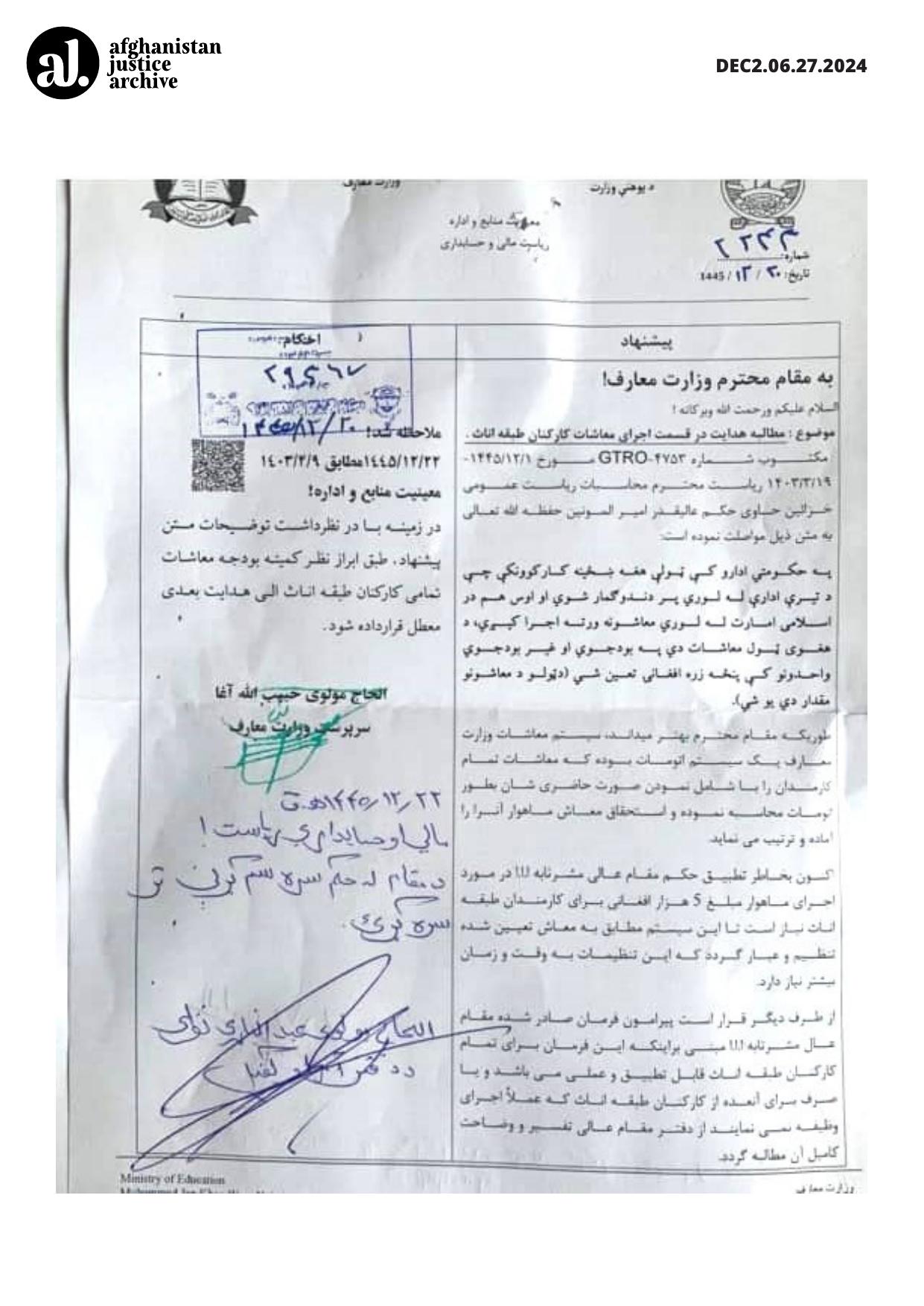Decree
Decree Translation
To: The Honorable Ministry of Education
Date: 1445/12/20
Subject: Request for Guidance on the Execution of Salaries for Female Employees
Reference: Document Number GTRO4753 dated 19/3/1403 from the Honorable Directorate of Accounting, General Treasury, containing the directive of His Excellency, the Leader of the Faithful (Amirul Mu'minin), may Allah preserve him, as follows:
(In all government offices, the salaries of all female employees who were appointed to high positions under the previous administration and are still being paid by the Islamic Emirate should be set at 5,000 Afghanis across both budgetary and non-budgetary units. The amount of all salaries should be standardized.)
As the esteemed office is aware, the Ministry of Education's salary system is automated. This system calculates the salaries of all employees, including their attendance, and prepares and processes their monthly salaries automatically.
In order to implement the directive of the esteemed leadership of the Islamic Emirate regarding the payment of a 5,000 Afghani monthly salary for female employees, it is necessary to adjust and align this system with the newly determined salary amount. Such adjustments require additional time and resources.
Furthermore, there is a need to seek clarification from the office of the esteemed leadership of the Islamic Emirate regarding whether this directive applies to all female employees or only to those who are currently not performing their duties.
Minister's Directive:
Reviewed on 9/4/1403
To the Deputy of Resources and Administration:
In light of the detailed explanation provided, and based on the opinion of the Budget Committee, the payment of salaries to all female employees is to be suspended until further instructions are issued.
AlHaj Mawlawi Haseebullah Agha
Acting Minister of Education
The Taliban’s directive to cap salaries for female employees—especially those appointed under the previous government—at 5,000 Afghanis per month has led the Ministry of Education to suspend all payments to female staff pending further instruction.
This decision, which affects both active and inactive employees, reflects a broader effort to marginalize women from public institutions and economically isolate them. The blanket suspension, issued without due process, threatens the livelihoods of many women who are primary breadwinners for their families.
